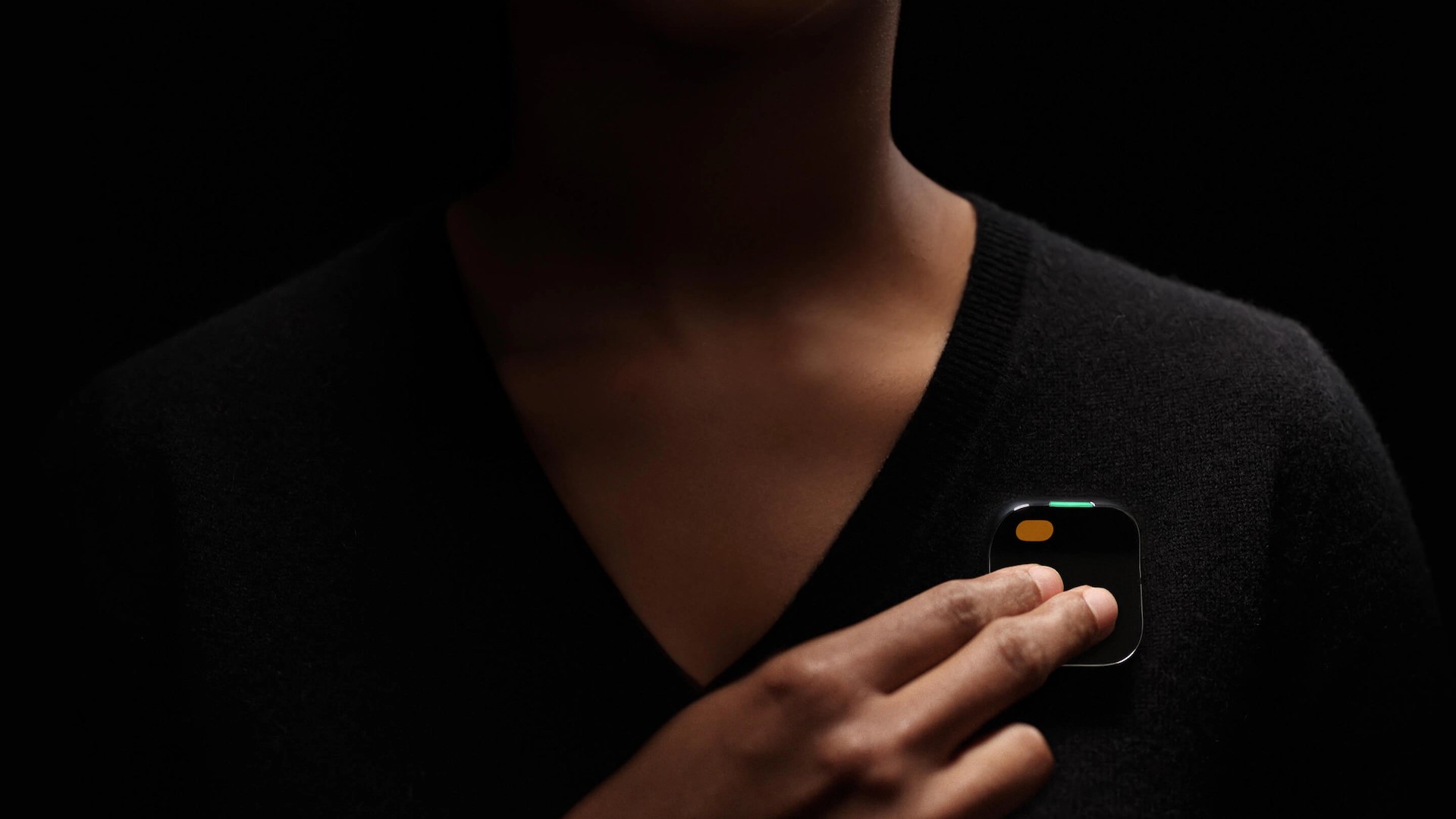The Lamen
Humane’s Ai Pin Pitches a Hands-Free Experience Over Phones

Humane’s Ai Pin is finally here (sort of), and it seems something straight out of a sci-fi movie.
Photo: Humane
A company founded by ex-Apple employees Bethany Bongiorno and Imran Chaudhri, Humane believes that harnessing AI could redefine our relationship with technology. Their idea: the Ai Pin — a culmination of five years of stealthy development and $240 million in funding from superstars of the tech universe.
The device is a $699 small, square device meant to be fastened to a shirt or blouse — and one with the audacious ambition of disrupting the smartphone space with a more hands-off approach. The device weighs some 34 grams, and the “battery booster” attached adds another 20. The Ai Pin goes on sale November 16 in the U.S. and comes alongside a $24-a-month subscription that gets you a phone number and data through T-Mobile.
Towards the top of the device reside an ultrawide camera, a laser projector, some sensors, and a “Trust Light” meant to let everyone know that it’s collecting data through audio or photos. The built-in projector projects menus, text, or music on your palm — you interact with the display by tilting and rolling your hand and tapping your finger and thumb together to make a selection (similar to the Apple Watch’s AssistiveTouch gestures.)
While there are no details on the battery life itself, Chaudhri did tell Wired that he wore his Pin from waking up till bedtime — though this doesn’t mean much when the device ships with two battery boosters.


You interact with the pin by stating your queries, viewing a projection on your palm, and using gestures for interaction.
Photos: Humane
Humane addresses a fundamental question about smartphones with its pitched device: How often do you interact with your smartphone, and how much of it is something mundane that you’d want to be stripped away? The device has no screen, apps, or settings to scroll through. Instead, it’s primarily meant to connect you to AI models like ChatGPT and dig through the internet for any query you might spell out. While the device accesses your histories of calls, messages, and photos, Humane says that users’ data won’t be used to train AI models.
Most of the features announced are what showed up during the company demo at TED earlier this year: a “Catch me up” feature that sums up your email and messaging inbox, getting nutritional information on food by holding it to the camera and tracking calories, voice-based messaging that “sounds like you,” and real-time translation. And answering phone calls, of course.
Wired notes that Humane also expects to add navigation and shopping capabilities over time and eventually open up the device to developers.
An introduction to the Humane Ai Pin from company founders Bethany Bongiorno and Imran Chaudhri.
Video: Humane, Inc./Vimeo
There is no guarantee of the device’s success, says OpenAI CEO Sam Altman, who also serves as one of the primary investors of Humane. “Maybe it’s a bridge too far,” he told the New York Times, “or maybe people are like, ‘This is much better than my phone.’” Plenty of technology that looked like a sure bet ends up selling for 90 percent off at Best Buy, he added. As for sales, Humane plans to sell an initial batch of 100,000 units, noting that over 110,000 people have signed up to the waiting list already — going on sale at some point early next year.
The Ai Pin seems, by most standards, a souped-up version of Google Assistant and Siri — not. What its potential success relies upon is Humane’s support over time as more features come to the device and a lower price allows it to trickle down to more users.
The Humane Ai Pin starts shipping sometime in early 2024 and preorders begin November 16th. ❏